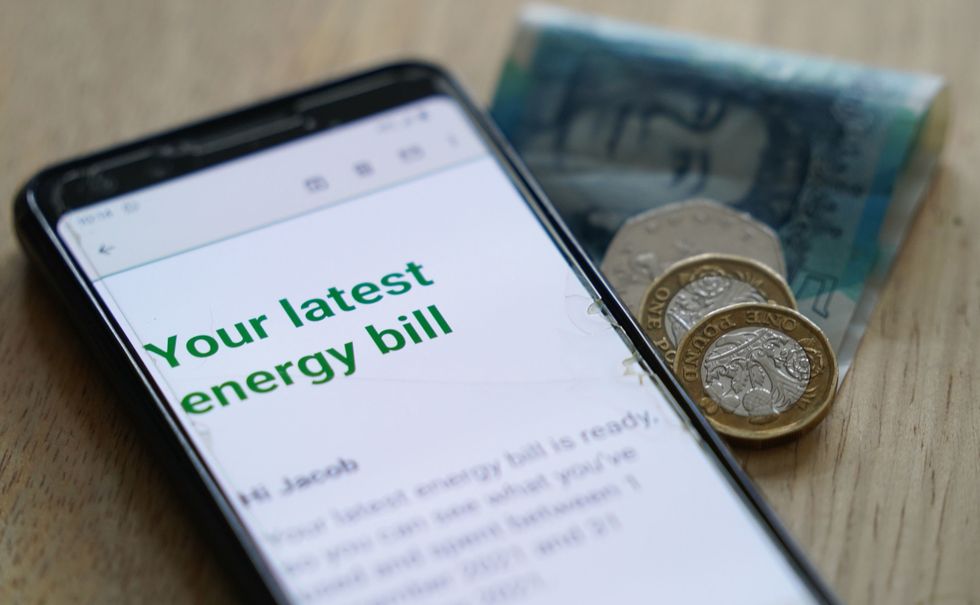Ofgem wants to know people's views on energy standing charges
PA
Energy companies are not obliged to have a standing charge and they can also charge less than what is set out in the price cap
Don't Miss
Most Read
Trending on GB News
Ofgem is calling for views on the standing charge, how it is applied to energy bills and possible alternatives, it has announced today.
The energy regulator is asking bill-payers, charities, consumer groups, businesses and suppliers for their thoughts on the charge, and proposals for alternatives.
The call for input marks the first time since before the 2021 energy crisis that Ofgem explicitly reopened the public debate around how the standing charge is spread between customers and what an alternative could look like.
The standing charge is a daily charge people pay each day to cover fixed costs of providing gas and electricity, regardless of how much energy used.

Energy companies are not obliged to have a standing charge
PA
The charge is used to recover the costs required to provide energy company services, such as providing and maintaining the wires, pipes and cables that deliver power to a customer’s door, through to the staff and buildings required for the energy business to work.
Director for Markets at Ofgem Tim Jarvis said: “We know that standing charges have provoked a huge amount of debate in recent months, and, with wider cost of living pressures meaning customers will continue to struggle with bills, now is the right time to look at this again.
“The standing charge is covered by the price cap, which puts a ceiling on what suppliers can set it. Suppliers are also under no obligation to have a standing charge and can charge less than what is set out in the price cap.
“However, it’s a complex issue and while an upfront set fee to cover a suppliers fixed costs works for some, it doesn’t work for others.
“Equally, spreading the costs differently might help some but our previous analysis has found it can also penalise some really vulnerable households.
“So, however we proceed, there is a difficult balance to be struck, which is why it is important as many as people as possible respond to our call for input with their experiences of it, how it affects them and what the alternatives could be.”
The call for input on standing charges is now open, until Friday January 19, 2024.
People can send their views to the regulator by emailing StandingCharges@ofgem.gov.uk by the aforementioned date.
Ofgem said it is interested in hearing ideas from any interested parties – including members of the public.
LATEST DEVELOPMENTS:
Bill Bullen, founder and CEO of Utilita Energy, said: “Standing charges represent the overheads associated with delivery of energy to households – but the standing charge mechanism is particularly unsuitable for prepay customers.
“We are keenly aware that PAYG households – who have a closer relationship with their energy usage and spend - feel that standing charges are like a leak in the meter that slowly drains away their credit. That’s why we have always opted for a two-tier tariff as a better and fairer way to recover standing charge costs.
“Since we launched in 2003 we have never applied a standing charge. Only Utilita customers have been able to pay nothing if they use no energy that day, and we’re popular for it.
“With standing charges in the spotlight, we fully expect to see more suppliers follow suit until the regulator finds a fairer way to calculate them.”








